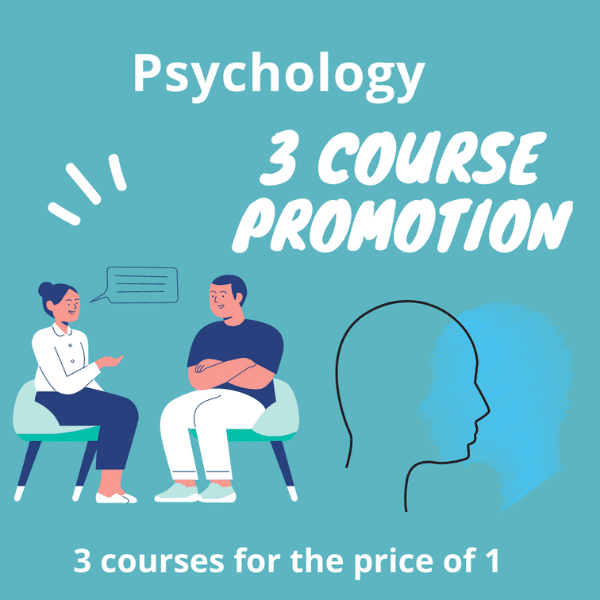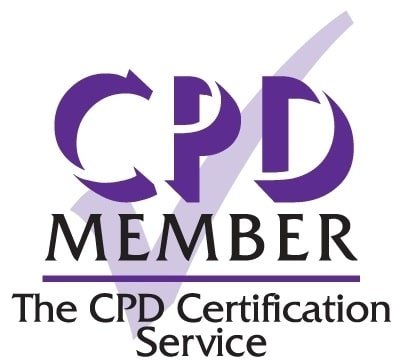Diploma in Child Psychology.
“It is easier to build strong children than to repair broken adults.” ❤️
4 Easy payments
Children do not deal with situations in the same way adults do because they do not process information the same way. In fact they do not have similar expressive or reasoning skills. Thus by understanding the child psychology, you can better understand children and even equip them to become well-adjusted and able to express their views. The Diploma in Child Psychology can help you find out about the nature and development of children.
Our short-term course provides you with an opportunity to increase your knowledge that in turn can help you face the changing challenges of parenting. The Diploma in Child psychology is relevant for both new and experienced parents and for anybody in teaching or day-care service of young children.
LEARNING OBJECTIVES AND COURSE BENEFITS
The purpose of this Diploma in Child Psychology is to reveal by examples and case studies, how the latest theories in Child Psychology may be applied to real world situations. This course is intended to help those who work with children or those who are parents learn to think in new and more conscious ways about the child raising experience. Students will learn alternative ways to understand and relate to children and to themselves as parents or as adults who care for children.
KNOWLEDGE
By the end of this course students will have a better understanding of how and why:
- Parents bring their own conflicts, anxieties, attitudes, and emotions into their experience of raising children.
- Parents personal psychology and the social conditions surrounding them get entangled with each other to make successful parenting a Herculean task.
- Nobody seems to be clear about whether we want strong-minded individuals or co-operative team players for our next generation.
- Nobody seems to be clear about how to achieve either goal through gentle love or tough love, freedom or structure, rewards or punishments.
- We are often not even aware of our vacillations between over-indulgence and self-involvement.
SKILLS
SKILLS
By the end of this course students will have developed the ability to:
- Help build a child’s self-esteem.
- Understand what tantrums are about and deal effectively with them.
- Understand why a child may lie or boast.
- Understand why children become aggressive and be able to effectively address instances of child aggression.
- Understand how differences in gender/siblings / single parents / working parents / separated parents may have on a child’s development.
- Understand what parents can do to protect their child against the increasing danger of drug use
UNDERSTANDING
By the end of this course students will have developed a deeper understanding of:
- Attachment and Separation
- Gender and Sexuality
- Sense of Self and Self-Esteem
- Temperament and Personality
- Discipline and Moral Development
- Family Relationships
Time limited offer
Get 3 of our courses for the price of one!
✔️ Receive training in all the major schools of psychology.
✔️ You can do the courses one at a time! You can even gift one to a colleague.
✔️ A Diploma Certificate is awarded for each course successfully completed.
✔️ There is no time limit for completion – take your time and enjoy the learning.

Course Content
Attachment & Separation
- What is attachment? / Secure & insecure attachments
- The parent’s bond / The infant’s bond / Failure of bonding
- Effects of parental practices, Maternal employment
- Separation anxiety – the dependent child
- Transitional objects
- Parents’ separation fears, who is losing whom?
Sense of Self & Self-Esteem
- The objective self, Infant’s self-understanding, Children’s self-concept
- Self-esteem, Importance of self-esteem in the parents, Encouraging a positive self-image
- The fragile self & how children protect it
- Adolescence – the toddler in the teen, Identity formation
- Erikson’s theory of development
Gender & Sexuality
- Gender similarities & differences, Development of the sex role
- Gender stereotyping, Gender & the media
- Sexuality in childhood, Changing sexual attitudes & behaviours
- Socio-biology
- Sons & daughters, Co-education/single sex schools
- Defence mechanisms including: repression, suppression, denial, sublimation, projection, reaction-formation, displacement, identification, compensation
- Sex & drugs & rock & roll
Discipline & Moral Development
- Definitions & components of discipline, Discipline or punishment? Self discipline
- Smacking – the debate: the case for an against, Use the rod, lose the child
- Specific problem behaviours: tantrums, lying, stealing, cheating, swearing
- Jean Piaget’s developmental model, Lawrence Kohlberg’s theory
- Moral education, Poisonous pedagogy
Temperament & Personality
- The role of temperament, Temperament & environment, Adult’s temperament
- ‘Easy’ kids, ‘Difficult’ kids, ‘Quiet’ kids
- Impact of the family – styles of parenting, Becoming an authoritative parent
- Stress, Optimism, pessimism & resilience
- Heredity – environment interaction
Family Relationships
- Family structure, The family as a system
- Divorce & separation, Step-parent/Step-child relationships
- Sibling relationships, Birth order, Only children
- The family life cycle – a 6-stage model
- Family therapy
- Caring for yourself as a parent, Exploring childhood as an adult
Accreditation
We are an approved Training Provider with The CPD Certification Service in London.
The CPD Certification Service was established in 1996 as the leading independent CPD accreditation institution operating across industry sectors to complement the Continuing Professional Development policies of professional institutes and academic bodies. The CPD Certification Service provides support, advice and recognised independent CPD accreditation compatible with global CPD principles.

ENTRY REQUIREMENTS
No formal educational qualifications are necessary to participate.
The course is designed for people who have an interest in Child Development. It is particularly popular with Teachers and Child Care staff. Other participants have included Nurses, psychologists, GPs, psychiatrists, psychotherapists, counsellors, social workers, counselling and psychology students.
COURSE DELIVERY & ASSESSMENT
The course is delivered completely online through our website. Each unit comprises reading material, short videos, and slide presentations.
There are two written assignments for this course to be submitted at the end of Unit 3 and end of 6. You will find the assignment questions on your dashboard. The questions are straightforward and relate directly to the reading material.
The tutor for this course is Dr John Crimmins. Dr John has over 20 years experience working as a Cognitive Behavioural Therapist. He is also a specialist in Eating Disorders. He is available for discussions and questions regarding course content.
enrolment PROCESS
Once payment is received we will register you to begin the course immediately. We will send you the course log in details by email and you can log straight into the course dashboard where all the course materials are contained.
The cost of £395 is the total cost of the training, this includes the Diploma which is emailed to you on successful completion of the course. There are no extra or hidden charges.
Make your learning journey more accessible with easy monthly payments!
Invest in your skills and knowledge without the upfront cost. Split the full course fee of £395 into 4 convenient monthly payments of just £99 (Please note, prices displayed may vary depending on your location and currency). This flexible option allows you to spread the cost and budget comfortably, making education more accessible than ever.
Here’s how it works:
- Enroll in the course and choose the “Subscription” option at checkout at the bottom of this page.
- Pay your first installment of £99 immediately.
- Three subsequent payments of £99 will be automatically charged to your card each month for the next three months. (Please note, prices displayed may vary depending on your location and currency)
Benefits of choosing the split payment option:
- Budget-friendly: Enjoy peace of mind knowing your investment is spread over manageable monthly payments.
- Start learning now: Don’t wait to begin your educational journey! Enroll and start learning immediately.
- Increased affordability: This option makes the course more accessible to a wider range of learners.
Start your learning journey today with our flexible payment option below!
